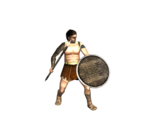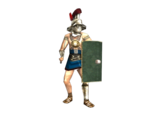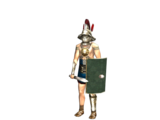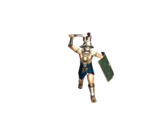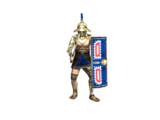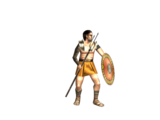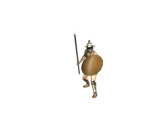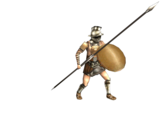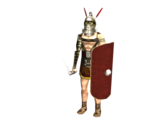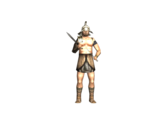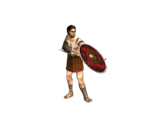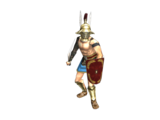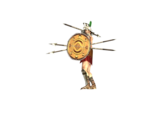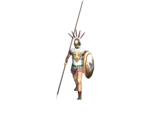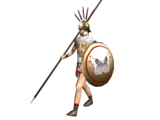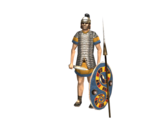Spartacus Total War
Template:Mod3 This page is in production and not finished.
Contents
Description
Spartacus: Total War is a modification that focuses on the gladiator uprising by Spartacus and other events at that time, such as Quintus Sertorius's rebellion in Iberia and the war with King Mithrades of Pontus.
Factions
The Gladiators
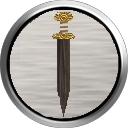 In 73BC, the slaves from a gladiatorial school near Capua revolted against their masters and defeated the school's guards. In their escape they encountered a wagon full of weapons used by gladiators that allowed them to defeat the garrison of Capua that was sent against them as soon as the authorities there heard about the rebellion.
In 73BC, the slaves from a gladiatorial school near Capua revolted against their masters and defeated the school's guards. In their escape they encountered a wagon full of weapons used by gladiators that allowed them to defeat the garrison of Capua that was sent against them as soon as the authorities there heard about the rebellion.
With the news of this first success many other gladiators from Capua, that was famous by its gladiatorial schools, as well as other slaves from the neighbouring towns, joined the rebellious slaves in the hills of Mount Vesuvius, to where they had retreated.
Their leader is Spartacus a thracian soldier that deserted from a auxiliary force of the roman army, was captured, sold as a slave, and then made a gladiator due to his strength. His experience in the ways of war, his intelligence and resourcefullness, allied with the disdainful way the Romans have faced this revolt, have given Spartacus and his people the time to prepare to meet the enemy.
The Gladiator's Units
Shepherd Slingers
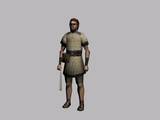 Not many years have passed since the Social Wars that opposed Rome against the rest of the cities in Italy. And although they have been defeated, some of them are always prompt to rebel against the Roman oppressor.
Trained and equiped in Roman style, this troops are a precious addition to Spartacus's army.
Not many years have passed since the Social Wars that opposed Rome against the rest of the cities in Italy. And although they have been defeated, some of them are always prompt to rebel against the Roman oppressor.
Trained and equiped in Roman style, this troops are a precious addition to Spartacus's army.
Italian Officers Although some troops will join the rebellion, they are still commanded by their own officers. File:Stw glad italianofficers.png
The Republic of Rome
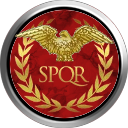 These are turbulent days for the Roman people. After the death of their first dictator in a hundred years, and almost recovered from the devastation that decades of struggle, both abroad and internal, brought, Rome finds itself threatened in various fronts once again.
These are turbulent days for the Roman people. After the death of their first dictator in a hundred years, and almost recovered from the devastation that decades of struggle, both abroad and internal, brought, Rome finds itself threatened in various fronts once again.
Iberia, one of Rome's most ancient provinces, is now nearly completely dominated by the rebel Quintus Sertorius and his iberian allies, and he is not about to content himself with it. Sertorius must be stoped at the price of having him nominated dictator, or even worse... king of Rome!
In the East, King Mithridates and his armies threatened to take over roman influence and power in Asia Minor for years, and now, after they have invaded, yet again, roman provinces and allies there, war against Pontus has been declared.
Parthia also threatens roman territories. The descendants of the Persians have expanded through the lands of Babylonia, Armenia and Arabia until they reached almost Rome's back door. Will the Parthians be willing to halt their expansion or will war follow?
And in Italy, who is this man that drives a horde of slaves, gladiators, and even freemen who have decided to join an army of rebels? Surely nothing more than rabble scum to be delt easily by Rome's armies...
The Roman's Units
For the Roman units, go here
Roman Territories
For the Roman territories, go here
Roman Rebels
 When civil war erupted in Rome, Quintus Sertorius took the side of his uncle Marius and travelled to the Iberia to secure to loyalty of those provinces but was soon defeated by one of Sulla's legates.
Sertorius fled to Mauretania where he organized an army and defeated many of Sulla's legates there. The news os his success in Africa reached the Iberian tribes who were being attacked by Sulla's legates in the region and an embassy was sent asking him to return to Iberia to lead it's armies against the oppressor.
Sertorius soon disembarked on Iberia bringing reinforcements from Africa and with the help of the Iberian tribes, took over almost all of the Iberian territories under the Senate´s control.
The power of Sertorius, however, is not undisputed. They must deal with the Senate's forces still in the peninsula and at the same time strengthen his dominions if they are to survive if something happens to him. Also, it is not clear what will be course his Iberian allies will take when the Senate's forces are defeated...they called upon Sertorius to liberate them from one master's yoke, who says they will bow to another?
Only after all these questions are solved the "rebels", as the Senate calls them, can think about higher projects. Will they march upon Rome to deliver justice to those who kicked them out of their homeland made them pariahs? Or is an independent Roman country in Iberia is enough?
When civil war erupted in Rome, Quintus Sertorius took the side of his uncle Marius and travelled to the Iberia to secure to loyalty of those provinces but was soon defeated by one of Sulla's legates.
Sertorius fled to Mauretania where he organized an army and defeated many of Sulla's legates there. The news os his success in Africa reached the Iberian tribes who were being attacked by Sulla's legates in the region and an embassy was sent asking him to return to Iberia to lead it's armies against the oppressor.
Sertorius soon disembarked on Iberia bringing reinforcements from Africa and with the help of the Iberian tribes, took over almost all of the Iberian territories under the Senate´s control.
The power of Sertorius, however, is not undisputed. They must deal with the Senate's forces still in the peninsula and at the same time strengthen his dominions if they are to survive if something happens to him. Also, it is not clear what will be course his Iberian allies will take when the Senate's forces are defeated...they called upon Sertorius to liberate them from one master's yoke, who says they will bow to another?
Only after all these questions are solved the "rebels", as the Senate calls them, can think about higher projects. Will they march upon Rome to deliver justice to those who kicked them out of their homeland made them pariahs? Or is an independent Roman country in Iberia is enough?
The Roman Rebel's Units
For the
